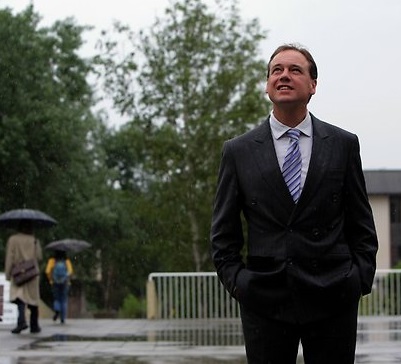Progress-stopping rules could be worked-around
 The Federal Government wants to change environmental laws so that a skink and a snake cannot hold up a massive coal mine.
The Federal Government wants to change environmental laws so that a skink and a snake cannot hold up a massive coal mine.
Attorney-General George Brandis wants the rules reworked to prevent green groups from “gaming” the system by pointing out missed steps in the approval process.
Brandis says conservationists are sabotaging vital economic projects, saying the rules at the moment provide a “red carpet for vigilante litigation’’.
“I think it’s a bad development,” Brandis told News Corp reporters on the weekend.
“I think that we should keep political disputes in the parliament and leave the courts to resolve legitimate, bona fide legal disputes.”
Tony Abbott has also warned recently that he believes the courts are turning into a “means of sabotaging projects”, after the Federal Government’s environmental approval for Adani’s $16.5 billion Carmichael mine in the Galilee Basin was set aside.
The project was involved in a legal challenge in the Federal Court brought by the Mackay Conservation Group, which used funding from activist group GetUp!
Senator Brandis has unleashed yesterday on the rise of “lawfare”, calling for changes to the Environment Protection and Biodiversity Conservation Act to prevent the system being “gamed”.
He said existing laws allowed “virtually anyone” legal standing to challenge determinations made under the act, as long as they had some lin with environmental efforts in the past two years,
So, Brandis has proposed that section 487 (2) of the act should be tightened, because the “statutory language is extremely loose” and “provides a red carpet for vigilante litigation”.
“I think the Adani case has shown why it’s very important that the courts not be used as a forum for vigilante litigation by people whose aim is to game the system, who have no legitimate interest other than to prosecute a political vendetta against development and bring massive developments, on which in this case some 2,600 jobs depended, to a standstill,” Senator Brandis told Sky News.
He said those “who challenged this are people who are determined to wipe out Queensland’s biggest industry, the coal industry”.
“And no government can stand in the way — can sit idly by and let people do that,” he said.
“So I am urging, and I have been urging my colleagues to deal with this matter.”
But Australian Conservation Foundation chair Geoffrey Cousins says Brandis is being disingenuous.
“Let’s not forget that the Adani case and decision last week was about an endangered species,” Mr Cousins told The Australian.
The Mackay Conservation Group has condemned any weakening of the rules, saying it would and put “mining companies, and the federal government above the law”.
“George Brandis’s comments today show just how far the government is willing to go to protect the interests of mining companies,” MCG co-ordinator Ellen Roberts said.
“Labor will not support amendments to the EPBC Act that weaken environmental protection laws, or limits a concerned community from exercising their rights to challenge a government’s decision,” a spokesperson for opposition environment spokesman Mark Butler told reporters.
“When governments fail to enforce or comply with their own laws, it falls to community groups to hold them to account,” says Greens deputy leader and Queensland senator Larissa Waters.
“Public enforcement of laws is a crucial tenet of our democracy.”
A six to eight-week windows has now opened before a new decision will be made on the Carmichael project.
During this time, Environment Minister Greg Hunt is expected to fully take into account conservation advice about the yakka skink and ornamental snake, though some expect him to be working on changing the rules instead.
Senator Brandis said he and his colleagues were appalled at the Adani decision.
“I’m not impeaching the legal basis of the decision,” he said.
“What I’m saying is that the result of the decision was very damaging to the economy. I come from Queensland. I’m conscious of just what a big deal this was. It’s almost like this was the Olympic Dam of Queensland.
“The effect on the state’s economy, particularly in central Queensland, where the economy is not doing very well at the moment, was devastating.”







 Print
Print